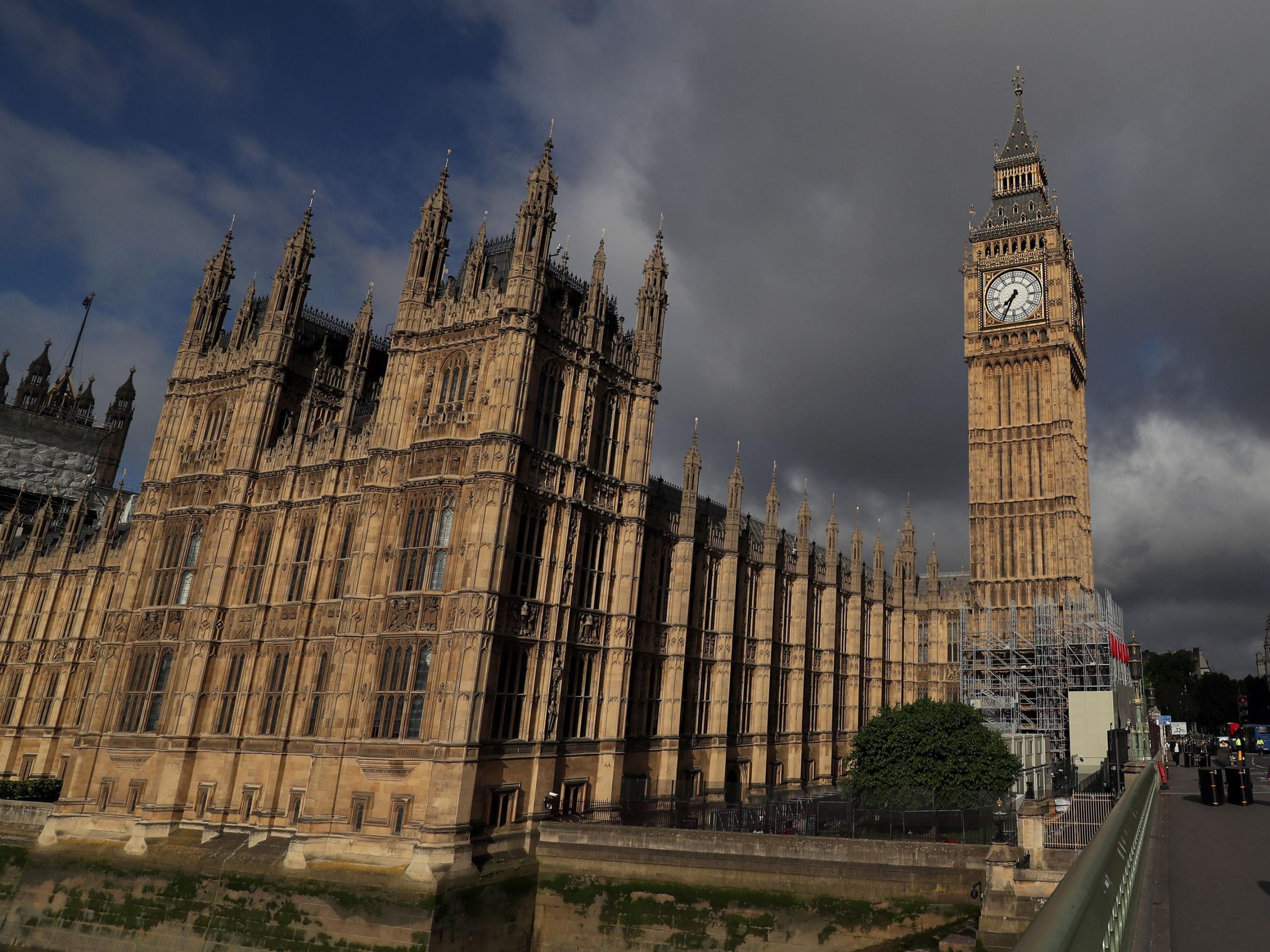There are MPs who don't understand power dynamics, which is why they need compulsory consent lessons
It’s become apparent so many in Westminster are utterly failing to understand the power dynamics at play between male MPs, senior political party figures and other staff like assistants and researchers


Your support helps us to tell the story
From reproductive rights to climate change to Big Tech, The Independent is on the ground when the story is developing. Whether it's investigating the financials of Elon Musk's pro-Trump PAC or producing our latest documentary, 'The A Word', which shines a light on the American women fighting for reproductive rights, we know how important it is to parse out the facts from the messaging.
At such a critical moment in US history, we need reporters on the ground. Your donation allows us to keep sending journalists to speak to both sides of the story.
The Independent is trusted by Americans across the entire political spectrum. And unlike many other quality news outlets, we choose not to lock Americans out of our reporting and analysis with paywalls. We believe quality journalism should be available to everyone, paid for by those who can afford it.
Your support makes all the difference.Westminster is in the throes of a sexual harassment epidemic and the Green Party has today proposed one possible solution – send parliamentarians to consent lessons.
It’s basic stuff. A month ago it might have seemed ridiculous to suggest MPs, the leaders of our country – supposedly some of our brightest and best, don’t understand what is and isn’t appropriate in the workplace.
How wrong we would have been.
The allegations are piling up across the political spectrum and my own experience as a young woman in politics is enough to indicate this is just the tip of the iceberg.
While I was speaking on a panel in 2015 about the whipping system, a Labour Lord remarked “I hope Amelia isn’t against whipping in a 50 Shades of Grey way”.
It’s just one example of the ingrained culture of sexism and harassment in Westminster that encompasses everything from inappropriate comments to physical assault.
There’s been an inevitable backlash to the allegations from people whose first thought is not for the women who have suffered, usually in silence, often for years, following incidents of harassment and abuse, but the men who perpetrate them.
The allegations have been dismissed in some sections of the press as a “hysterical witch hunt” and columnists have warned against every “clumsy pass” being considered a crime.
There is a growing chorus of men and women echoing these thoughts, all with the same underlying question – what is the difference between flirting and sexual harassment?
The difference is power.
We all know that sexism is endemic in society. Patriarchy exists everywhere and is played out in our lives on a daily basis. But what makes the actions of parliamentarians so unacceptable is that toxic combination of patriarchy and power.
A misjudged attempt to come onto a friend or stranger is a wildly different scenario from a senior male MP doing the same, whether with inappropriate comments or by physically touching a junior staff member.
Particularly when that man is your direct employer – and you have no HR department to go to.
Or if it’s the interviewer on a panel that decides whether you get the job or not.
Or if it’s a senior figure in the political party you hope to build a career in. When you’re part of a political movement that’s working towards a shared vision of the world the situation can become even more complicated – there’s an added pressure to behave in a certain way “for the good of the party”.
Women often face an unfair and impossible choice between their careers and speaking out about what has happened to them.
The public is not kind to women who make public allegations against powerful men. We only need to look across the Atlantic at Donald Trump to see how easy it is for these men to go unpunished, no matter how serious the claims about their behaviour are.
It’s become apparent so many in Westminster are utterly failing to understand the power dynamics at play between male MPs, senior political party figures and other staff like assistants and researchers.
That’s why compulsory training would make a difference. Not just as part of the induction into parliament for new MPs but ongoing and compulsory for all parliamentarians – starting now.
It is also Green Party policy for consent lessons to be part of compulsory PSHE in schools. After all, Westminster is far from unique in its failure to tackle harassment. Research just last week revealed one in five women have been sexually harassed at work.
It’s crucial PSHE is expanded to cover more than just the basics of puberty and sex education. Healthy relationships, consent and online safety should all be part of an LGBTIQA+ inclusive, age-appropriate programme.
Early intervention would have a wider impact and safeguard the next generation against the same abuse so many have faced in Westminster, no matter what industry they work in.
Westminster’s deficiencies when it comes to reporting procedures have already been exposed. But we have yet to discuss ways to prevent sexual harassment and assault in the first place.
Training for MPs would need to cover consent, what is and isn’t appropriate in the workplace and professional boundaries. And it would need to instil in them a sense of respect for all those they work with and challenge the toxic masculinity that is often central to the culture which makes this harassment seem acceptable.
Training for MPs certainly won’t protect all women but it’s a step in the right direction. Westminster has the opportunity now to lead the way and demonstrate to other sectors how sexual harassment can be stamped out.
All women deserve to be treated with respect at work and have any wrongdoing investigated properly – without having to relive their trauma in the public eye, without being accused of taking part in a witch hunt and without the fear that perpetrators will escape unpunished.
Amelia Womack is deputy leader of the Green Party
Join our commenting forum
Join thought-provoking conversations, follow other Independent readers and see their replies
Comments